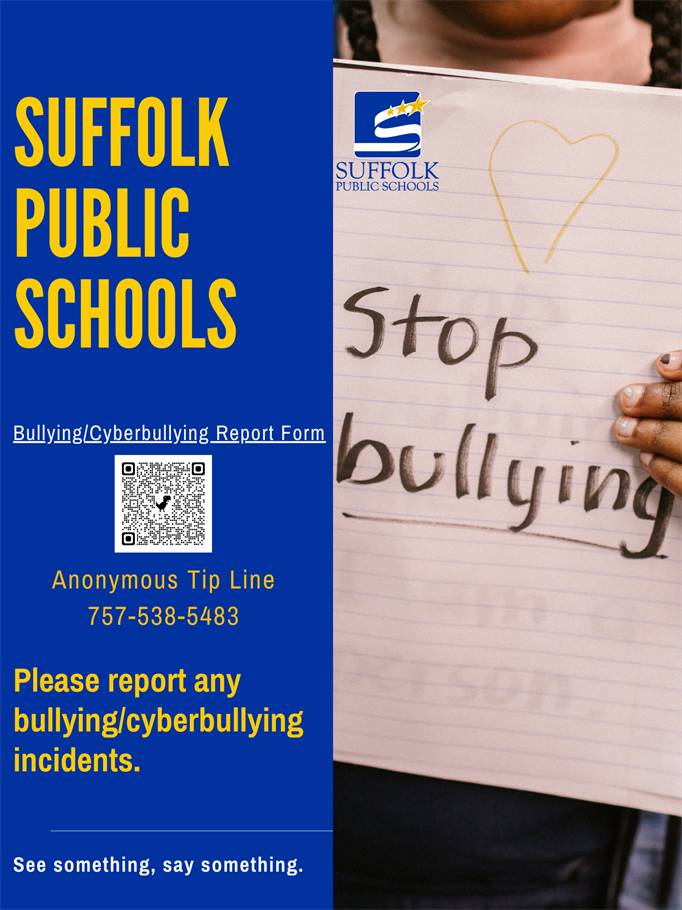-
Parent involvement in your child’s education plays a crucial role in preventing bullying in schools. When parents actively engage with their child’s learning and school environment, they build strong communication channels that allow them to recognize signs of bullying or behavioral changes early on. Involved parents can reinforce positive behaviors, teach empathy, and model conflict resolution skills, helping children understand the impact of their actions on others. A strong partnership between parents and schools creates a supportive network, and a respectful atmosphere where bullying is less likely to thrive.
What is Bullying?
-
“Bullying” means any aggressive and unwanted behavior that is intended to harm or humiliate the victim. It is usually repeated over time. It can be done verbally, in writing, or through communication devices known as “cyber bullying".
The following examples are illustrative of bullying: physical intimidation, taunting, and insulting comments regarding race, gender, religion, physical abilities or characteristics. It can also include inappropriate emails, text messages or internet postings. It does not include ordinary teasing, horseplay, argument or peer conflict.
Suffolk Public Schools does not condone bullying on any level and asks students to report these incidents to school administrators or teachers when they do occur. If you suspect your child has been bullied, you should report it to the school administration immediately. Reporting can be done anonymously through the Bullying Hotline too.
School administrators are required to contact parents of any alleged “bullying” that may involve their child within 24 hours of being reported.Examples of Bullying
Physical Bullying
- Physical assaults, such as hitting, pushing, choking, hazing, tripping
- Taking items such as money, food, or homework
- Damaging belongings such as clothing, school supplies, and school projects
Verbal Bullying
- Threats
- Teasing and taunting
- Criticizing or ridiculing
- Name calling or sarcasm
- Starting and spreading rumors
- Telling lies
- Using sexual innuendoes/comments
Non-Verbal Bullying
- Ignoring or excluding on purpose
- Mean or inappropriate looks, stares, or glares
Cyber Bullying
- Making threats to others on the Internet and chat rooms
- Sending cruel or inappropriate email or instant messages
- Taking inappropriate photos with cell phone cameras
- Posting inappropriate material on websites is meant to damage reputations
How to Report Bullying
Talk with the following:
- Your parent(s) or adult family member
- Adult you trust
- Teacher
- School Administrator
- School Counselor
- School Psychologist
- School Nurse
- School Social Worker
- School Resource Officer
- Coach
- School Support Staff
- Police
Do the following:
- Call the Suffolk Public Schools Bullying Hot Line at 757-538-5483
- Complete the SPS Complaint of Bullying Form - SPS Complaint of Bullying Form

All students are subject to the rules listed in the student handbook. Students involved in incidents of bullying will face disciplinary action, including the possibility of long-term suspension or expulsion.

